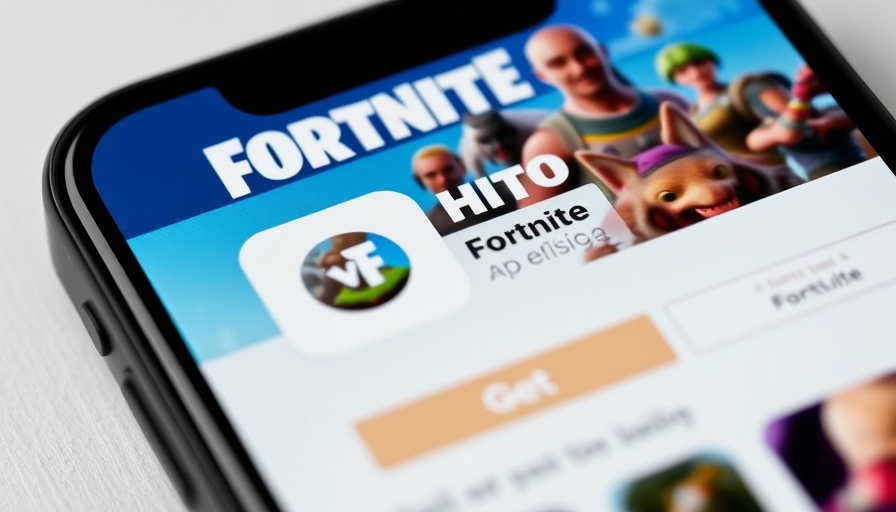
Epic Games vs. Apple: The Ongoing Legal Showdown
In a bold move to re-enter the mobile gaming arena, Epic Games has asked a federal judge to compel Apple to approve its popular title, Fortnite, for inclusion in the App Store. This latest filing, made by Epic Games amidst a long-standing legal battle, emphasizes the growing tensions between developers and tech giants over platform autonomy and revenue sharing.
Background: A History of Dispute
The saga began when Epic introduced an alternative payment system in Fortnite, circumventing Apple’s revenue-sharing rules. This act provoked Apple to remove the game from its store in 2020, sparking a legal dispute centered on anti-competitive practices. Judge Yvonne Gonzalez Rogers ruled recently that Apple violated injunctions regarding pricing, providing glimmers of hope for developers advocating for fairer app store policies.
Epic's Recent Court Filing: Insights That Matter
Epic’s new court request urges the Judge to require Apple to accept any compliant version of Fortnite into the App Store. The filings allege that Apple’s refusal to re-list the game in the U.S. represents a direct effort to punish Epic for its challenge to Apple's business practices. Epic argues that this blockade not only hinders their operations but sends a chilling message to other developers contemplating similar actions against Apple’s monopoly.
The Stakes: What This Means for Game Developers
For many game developers, the outcome of this case could mark a turning point, demonstrating whether significant tech companies can maintain control over their ecosystems at the expense of market competition. If Epic can successfully penetrate the App Store once more, it might embolden others in the industry to contest Apple’s strict guidelines. The repercussions of this case extend beyond Epic and Apple; they could reshape app monetization across the gaming landscape.
Apple's Response: The Company Stands Firm
While Epic claims that Apple is blocking Fortnite globally, Apple has countered that they merely requested an update to the app that doesn’t require adjustments specific to the U.S market. Apple is currently appealing the recent ruling that handed Epic a pivotal win in this conflict. The company’s approach has been to strengthen its defense of App Store policies, asserting that they maintain a fair marketplace that benefits developers and consumers alike.
Future Insights: The Evolving Role of Mobile Gaming
As mobile gaming continues to grow in popularity, the stakes are high for all involved. With approximately 80% of gamers now playing on mobile devices, the resolution of legal discord between titans like Epic Games and Apple could lead to new standards governing app distribution and monetization. Should Epic succeed, we might see a push toward more open app marketplaces, potentially disrupting established norms in mobile commerce.
Implications for Consumers: Who Ultimately Wins?
At the heart of this legal battle lies the question: who benefits? If changes in app store policies emerge from this dispute, players could gain access to more competitive pricing and diverse payment options. However, industry watchers caution that excessive regulation could stifle innovation and service quality, raising concerns about whether increased options will ultimately lead to a better gaming experience.
Conclusion: Why This Battle Matters
The fight between Epic Games and Apple transcends a mere corporate feud; it embodies broader issues of market competition, consumer rights, and the future of digital commerce. As it continues, the tech industry closely monitors the outcome of this case, which could influence how tech giants manage and profit from their app ecosystems. Regardless of the outcome, both players in this high-stakes game are shifting the paradigms through which digital interactions are conceived in the concert of technology news today.
 Add Row
Add Row  Add
Add 



Write A Comment